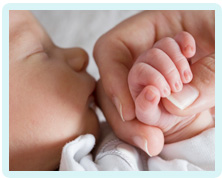
Maternal Childbirth Trauma - Acknowledging the Problem
Childbirth has been a high-profile subject of late in terms of NHS failings and honest, graphic descriptions of distress by women affected by the pain and trauma of childbirth.
Recent developments
The NHS's recent annual report for 2016 - 2017 identified that, over that period, half of the total value of claims for clinical negligence related to obstetric injury. Inevitably, a large part of this will have been compensation for life-changing injuries to babies during birth but significant sums are also awarded to the new mothers who have suffered unnecessarily with injuries incurred during the birth of their baby.
This accords with the recorded increase in occurrences of severe perineal trauma experienced by pregnant women in the UK. Up to 6% of first-time mothers are believed to experience a severe tear to the perineum during childbirth and over 7% are at risk if they give birth to their second child vaginally after having suffered a severe tear the first time round.
It is an interesting development that the Royal College of Midwives has recently decided to abandon its policy of encouraging what it termed 'normal' birth where the mother could reject medical interventions - e.g. epidural, caesarean section - in the birth of her child.
Impassioned articles in the press of late have also drawn attention to the psychological trauma of childbirth - the loss of control, the pain, the likelihood of injury, and, in some cases, the lack of not only information and choice but of compassion and kindness.
Severe perineal tears during childbirth
Here at Glynns Solicitors we regularly hear of instances where post-birth examinations are not undertaken, injuries pass unnoticed, expressions of pain go ignored.
Of course, the reality is that childbirth is painful and that perineal trauma as a result of childbirth can be both devastating and life-changing.
Severe perineal tears, if poorly diagnosed or ineffectively treated, can lead to a life-time of misery for the woman affected.
A severe tear will injure the skin and muscles of the perineum as well as the muscles of the anus. It is even possible that the lining of the anal canal may tear.
As a result, the new mother may find herself unable to control her bowels, becoming incontinent of both wind and faeces. This can be destructive to her working life as well as her domestic and social life. She may find it difficult to bond with and care for her baby.
Guidelines
The Royal College of Obstetricians and Gynaecologists have issued guidelines as to the management of women during childbirth, with specific reference to the prevention, diagnosing and treatment of perineal tears. Mistakes should not happen.
Medical Negligence
If you have suffered the long-term effects of a misdiagnosed or poorly treated 3rd or 4th degree tear, you may be able to make a claim for compensation for our pain. Contact Glynns Solicitors, specialists in medical negligence claims to discuss your experiences.
Please call us on 0800 234 3300 (or from a mobile 01275 334030) or complete our Online Enquiry Form.



